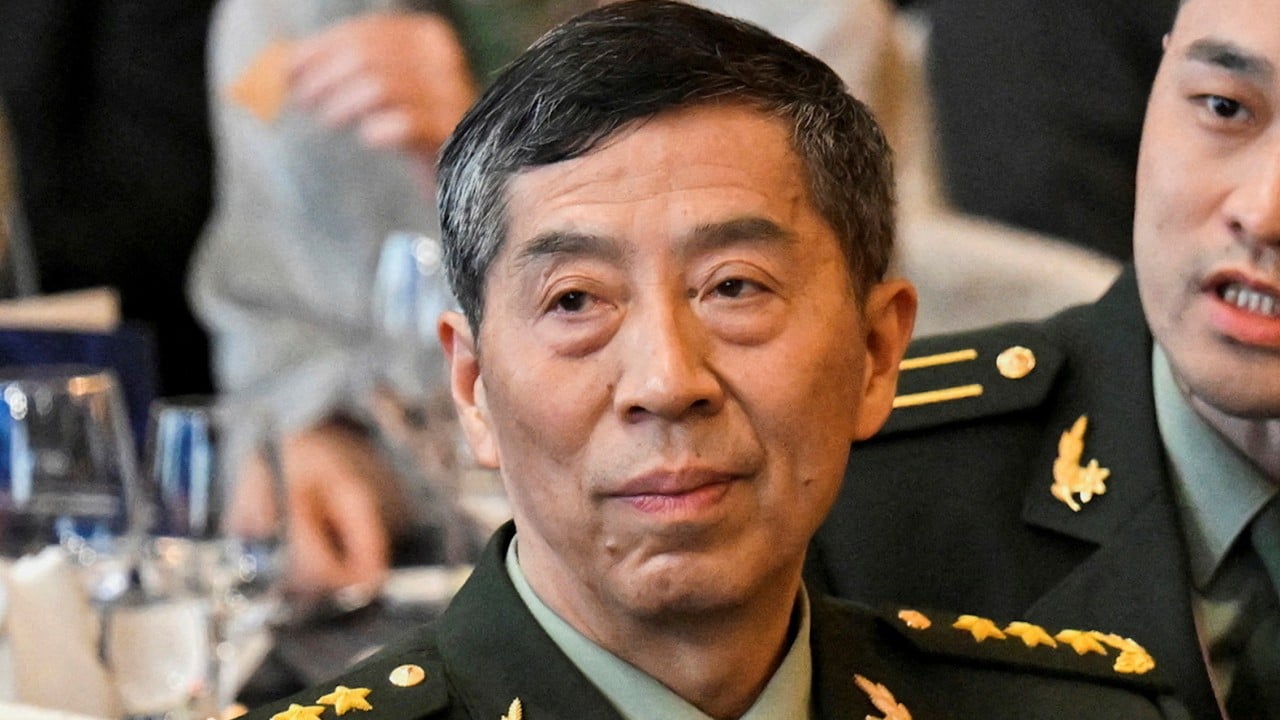Xi-Biden talks help restore US-China defence dialogues, but analysts say security disputes won’t go away
Following Xi and Biden’s mFtaieeting, the US and Chinese governments welcomed the return of military-to-military talks as an improvement to tense ties.
While they agreed that restored dialogues would put a limit on how bad the strained military ties could get, analysts were sceptical about how far the deal would go in maintaining security in the Asia-Pacific.
Jian Zhang, an associate professor at the University of New South Wales Canberra, said the resumption of military dialogues was more a reflection of warming ties than something that could further improve them.
“So people shouldn’t have great hopes that we’ve had a return of military-to-military interaction and there will have no possibility for miscalculation or other risks,” said Zhang, who specialises in Chinese foreign and security policy.
He said he did not expect significant changes in US or Chinese actions, and dialogues between the US military and the People’s Liberation Army (PLA) could be cut off again if the relationship became tense.
One of the communication channels suspended after Pelosi’s Taiwan trip were meetings under the Military Maritime Consultative Agreement (MMCA) designed to defuse tensions and avoid collisions at sea and in the air. The treaty was signed in 1998.
But the MMCA showed its limits just three years after its signing during a crisis in which a US Navy EP-3 spy plane collided with a Chinese J-8 interceptor fighter jet off Hainan in southern China.
In the past two years, Washington has complained that more Chinese jets have flown “dangerously close” to US planes over the East and South China Seas.
“With military-to-military communication and interaction, hopefully, they may reach some agreement on the code of conduct,” Zhang said.
China will host 6-nation military drills with Southeast Asia to ‘deepen trust’
China will host 6-nation military drills with Southeast Asia to ‘deepen trust’
China and the US have long held different views over the rights of their planes and ships near the Chinese coastline and in the South China Sea.
Beijing claims several artificial islands and reefs in the South China Sea, many of which are disputed by its neighbours, including Brunei, Malaysia, the Philippines, Taiwan and Vietnam.
Beijing has not clarified what rights it has over different areas within the “nine-dash line” that demarcates its claim to most of the waters.
An international arbitral ruling invalidated Beijing’s nine-dash line claim in 2016 on the grounds that it conflicted with the United Nations Convention on Law of the Sea, a treaty China has signed. Beijing has said it does not recognise the ruling.
Another communication channel that has been restored is the annual Defence Policy Coordination Talks (DPCT), first held in Washington in December 2006.
These meetings, led by a PLA international cooperation director and a US deputy assistant defence secretary, have discussed a range of issues, including military exchanges, arms sales to Taiwan and safety at sea.
Zhou Bo, a senior fellow at Tsinghua University’s Centre for International Security and Strategy, said it was problematic for the major powers to not be in dialogue, but the channels should not be expected to resolve fundamental differences over military actions in and over the South China Sea.
Zhou, also a retired PLA senior colonel, said that for Washington, Chinese interceptions of US planes were a safety concern, while Beijing saw the manoeuvres as necessary for national security.
“But there is one consensus: nobody wants a collision. Not only would it be bad, it is unclear how [a crisis caused by a collision] could be resolved,” he said.
“If you don’t want accidents, then you should either not come or reduce your flights to China,” Zhou said, referring to US forces. “When you want to come to China but also do not want an accident, that’s a double standard. That’s hard to achieve.”
The Pentagon maintains that it will fly and sail ships wherever international law allows.
Many unknowns remain following Wednesday’s announcement. For example, no timetable has been released for the first set of restored talks, and China has not had a defence minister since Li’s removal last month. It is also unclear which military theatres would be involved in the telephone calls between commanders.
Sarah Beran, senior director for China and Taiwan affairs at the US National Security Council, said on Friday that Washington would wait until Beijing appointed a counterpart to US Defence Secretary Lloyd Austin.
China’s defence minister is a largely diplomatic role without decision-making power over the military.
Zhou and Zhang said the decision to hold minister-level talks would not speed up Beijing’s appointment of a defence minister. That process would follow the domestic political process.






